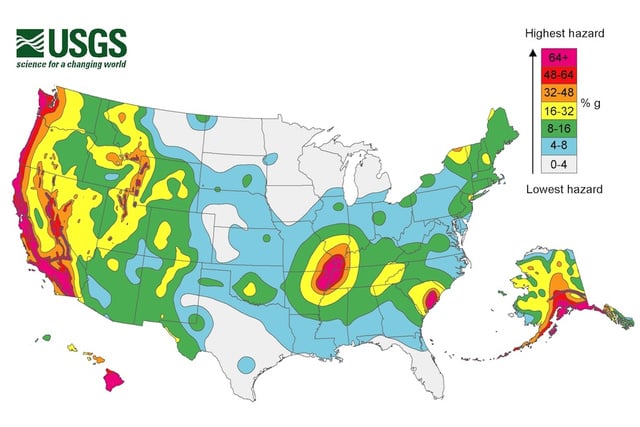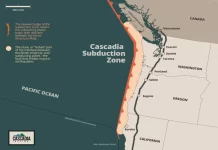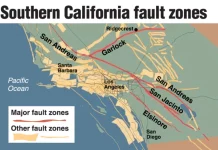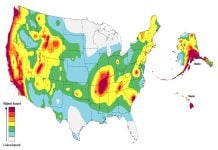Seismologists have found that, contrary to popular thought, earthquakes in the central U.S. are not slowly tapering off — instead the threat appears to be building.

A new research study, published today in Science by USGS seismologists Morgan Page and Susan Hough, looks at earthquake activity in the New Madrid Seismic Zone (see the red dot hovering between the midwest and the south on the map above). This active earthquake zone stretches 150 miles, crossing parts of Arkansas, Illinois, Indiana, Kentucky, Mississippi, Missouri and Tennessee.
As already introduced in previous posts, a New Madrid Fault earthquake would have catastrophic results.
This is how the scientists summarize their work in their abstract:
The extent to which ongoing seismicity in intraplate regions represents long-lived aftershock activity is unclear. We examined historical and instrumental seismicity in the New Madrid, central U.S. region to determine whether present-day seismicity is composed predominantly of aftershocks of the 1811–1812 earthquake sequence. High aftershock productivity is required to match both the observation of multiple mainshocks and to explain the modern level of activity as aftershocks; synthetic sequences consistent with these observations substantially overpredict the number of M ≥ 6 events that were observed in the last 200 years. Our results imply that ongoing background seismicity in the New Madrid region is driven by ongoing strain accrual processes and that, despite low deformation rates, seismic activity in the zone is not decaying with time.
When it will go boom is another question… But it will sooner or later go! And hopefully we will not have to add them to this list of the strongest earthquakes ever!













Except, the “boom” [Strange Sounds] during the New Madrid earthquake sequence in 1811 and 1812 were the result of a meteor impact to northern Mississippi: http://koolkreations.wix.com/kalopins-legacy “A Few Comments on 1811”
http://able2know.org/topic/224693-1
Find the truths behind the myths…